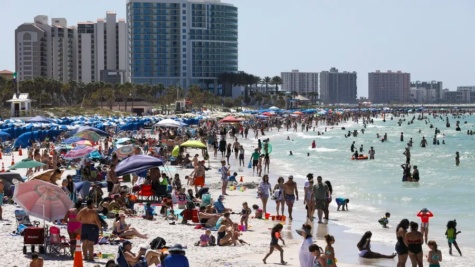
Sophie Echternach | Writer
March 20, 2022
Spring Break is everyone’s favorite week-long break from school. Warm weather, sandy beaches, and no homework all paint the perfect picture for a break. However, in the last ten years, the expectations set on spring break — specifically for upperclassmen and college students — have dramatically changed, and not for the better.
A quick bit on the history of spring break. Originally created in the mid-1930s as an excuse for a swim coach to take his boys’ team down to Florida for a week for practice, spending time at the beach and pool quickly evolved into partying and making poor decisions. Eventually, a movement called ‘Where the Boys Are’ led young women to flock to Florida as a way to party with boys their age over a week-long period in the spring.
Today, that trend continues. From the second week of March through mid-April, you can find any beach resort in Cabo, Florida, or across the coast booked full, filled with an unruly amount of young adults. While partying here and there is not necessarily bad, many of the trends of drinking and impaired decision-making, specifically over spring break, have led to many avoidable and sometimes fatal accidents.
Over the spring break period, traffic-related accidents increase by 9%. These negative effects of spring break culture have caused many parents to raise concern over their children’s spring break trips while unnecessary social expectations encourage young adults to participate in the ocean fun.
“I do feel that in general there is a certain expectation that everyone in high school and college is supposed to have some extravagant and fun spring break plan,” senior Jenna Garvey commented on spring break culture. “It is almost an unspoken competition to see who has the biggest party in the best location during spring break.”
This adds unnecessary pressure and stress to already incredibly pressured students. The culture of spring break can lead to students feeling left out. This has been amplified in recent years by the sharing of trips over social media.

“I definitely think people are pressured to show off their spring break adventures especially because of social media,” junior Kayla Shanafelt said. “People are seeing other people post about their fun lives and want to top their posts to feel included and to gain validation in a way.”
Students do not need the added pressures of spring break expectations; there is enough expectation of them thanks to academics and athletics. Unfortunately, spring break culture has become less of a relaxing vacation and more of an opportunity to show off on social media. Now, people want to bring back what spring break once was: warm weather, sandy beaches, and no homework.

Leave a Reply